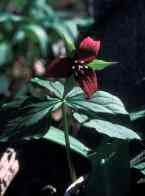Years ago, Bill Cosby did a comedy routine about Noah and his hypothetical neighbor. Picture Noah, working away on the ark, in suburbia. From memory:
Neighbor: “What’s this?”
Noah: “It’s an ark.”
Neighbor: “What’s it for?”
Noah: “I can’t tell you.”
Neighbor: “Right. Could you get it out of my driveway? I gotta get to work! (Pause) Really, could you give me little hint?”
Noah: “How long can you tread water?”
These days, I feel a lot like Noah may have felt, knowing what was to come and how it would affect people. Since last December, I’ve been attending a book study group/bunch of concerned people that has been reading Rob Hopkins’
The Transition Handbook. In it, Hopkins reviews the evidence for the twin impending threats of climate change and peak oil, and the evidence is pretty damn compelling. I have read it, and I accept the evidence as sound. This is not the same as “I believe”; it’s a case of “I have a pretty good idea (borrowed from the movie “Dogma”).
If you’d like to read the arguments for yourself, read Hopkins’ book and
The Long Emergency by James Howard Kunstler. Review the past several months of weekly posts at
The Archdruid Report. Don’t take my word for it, but start reading
soon. The bottom line on climate change is we’re in for warmer, probably drier times in the short term, with droughts, mere water shortages, probable crop failures and other disruptions to the food supply, and certainly thousands, if not millions, of climate refugees.
As far as Peak Oil, we may have passed the time when worldwide oil production has begun to decline, while demand continues to increase. According to Kunstler, we are probably in for a period of uneven supply, and wildly fluctuating prices. The $140 per barrel oil of 2008 will seem like kid stuff. Oil supplies will not run out for a few more decades, but oil and shortly after, natural gas, are going to become more and more scarce. Some have said we have as little as two years.
Imagine how Noah must have felt, knowing that something completely disruptive to our culture is coming. I wonder how he looked at his neighbors, what he felt. If it was "you're gonna get what's coming to you, decadent slothful sinners", then I can empathize. Our way of life is based on cheap energy, particularly oil. We've been pretty lousy inhabitants of Planet Earth, rather like the spoiled "entitled" brats who trash hotel rooms. I also care about people, and hate to see suffering. I guess I would settle on "it's time to face the music", but I'm an oil-sinner too.
How do you carry around a secret like this? I would tell everyone I meet, but I (and others) risk being called Chicken Little or Boy Crying “Wolf”. We’ve had a taste of the economic chaos that lies ahead: corporations failing right and left, huge banks failing, government acting as fast as it can to do too little too late, or worse, something totally counterproductive. Hopkins offers two chapters on how we might deal with our grief for the loss of a way of life. For those who might pray for salvation, either technological or spiritual, I offer what I have learned from the Archdruid: “No one’s coming, Harry” (from Harry Potter #3). No one is going to bail us out of it this time.
So how does one bring up the notion of Energy Descent, coming down off our addiction to oil? I do believe, for the planet’s sake, it’s a good thing. But how will I get to work in the winter? Will I have a job? Will it matter? Will the bank holding my mortgage fail, and I can just squat here? How will we meet our needs for food, water, health and heat? And the big one, will people pull together as they do after disasters, or will they freak out and retreat behind parapets and portcullises (those pointy iron things that drop down in front of castle gates)? I really think we need to start talking, first with trusted friends, then with family, then with those in our communities.
Here’s my plan, and I have one big advantage over Noah: I’m not sworn to keep this a secret. I’ll get to know my neighbors, and find out what skills or goods we can provide for one another. I’ll get serious about saving seed and growing my own food, or seeing that it’s supplied from within a few miles. I’m already growing some plants for medicine, and I’ll expand this. After the chickens start laying well, I’ll offer eggs for trade. I know how to build good compost, so I’ll help them make good soil. I could even offer rides to town. Maybe then I'll mention that energy prices are going to shoot up like crazy in the next few years. Let's weave the fabric before we really need it!
We might make it if we keep the old adage in mind (if I might amend it): “Steal a man’s fish and you eat for a day, steal his nets and you eat till the nets wear out. Ask him to teach you to fish, and you both eat.” It’s not about treading water this time; it’s about learning to swim, and learning to swim together.



